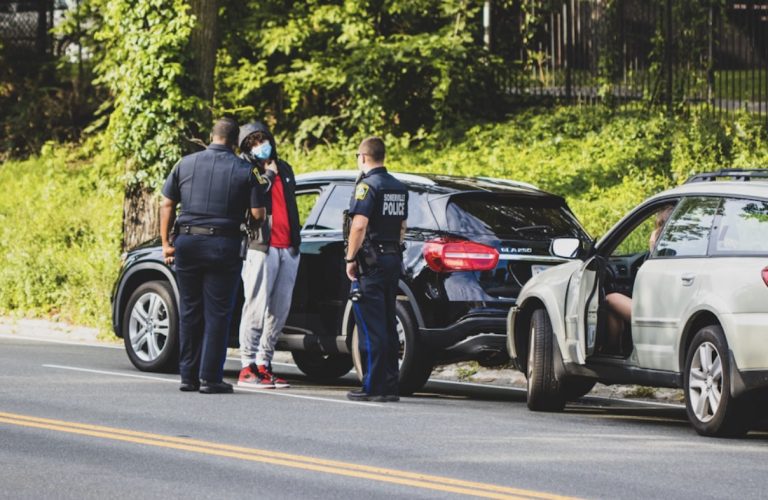Compensation is paid to the victims of car accidents so that they can move forward with their lives. However, the process of obtaining compensation isn’t one claimant can typically navigate themselves. More often than not, claimants need to enlist the help of attorneys. Auto accident attorneys have the expertise and knowledge needed to ensure that claimants are paid the compensation they are owed. This post will explore this topic in more detail and tell you everything you need to know about what personal injury claims entail, from crashes to compensations.
Story Stages
1. Finding An Attorney
Immediately after a car accident, you will be taken to the ER. Upon your discharge, the first thing that you should do is find a team of accident attorneys to represent you. An attorney will be able to make a claim for compensation with the guilty driver’s insurance company. Personal injury lawsuits are typically dealt with outside of court. There is a common misconception that litigation is required in order to resolve them, but this is not the case. Courtroom litigation is sometimes required, but only when an agreement can’t be reached between attorneys and the insurance adjusters they are negotiating with. You need to find the most experienced attorney you can so that your claim is dealt with in a timely, efficient manner.
2. Understanding the Process
The process of obtaining compensation can be long and drawn out. For more serious claims, resolutions can take a year or more. Before entering a personal injury claim, you need to take time to educate yourself. One of the best ways to do this is to sit down with an attorney and ask them to talk you through the necessary steps. Additionally, use online forums to communicate with people who have claimed compensation in the past. Forums can be a great resource because they give you an opportunity to learn from other people’s experiences. Guides and tutorials are great places to turn as well. Make sure that you use the most reliable, trusted guides and tutorials that you can. Ideally, you should use ones authored by personal injury attorneys or people who have claimed compensation in the past.

3. Obtaining Some Evidence
Once you have taken the time to understand the personal injury claim process, you need to go ahead and start looking for evidence to support it. Truthfully, the best evidence is the kind obtained on the scene of the accident, i.e., photographs or videos of yourself or your car. If you are unable to produce your own evidence, canvass the neighborhood where the accident took place and find out if there are CCTV cameras facing the direction of where it happened. An alternative to doing this is to ask your lawyer to. After most accidents, guilty drivers admit guilt. If the driver that caused the crash you were involved in admitted responsibility, you do not necessarily need to go out and find evidence. The guilty driver’s admission should be enough. If further evidence is required, your attorney will get in touch with you and ask for it. Make sure you respond to their requests and give them the evidence they have asked for.
4. Arguing Your Case
You may need to argue your case. Sometimes there is not enough evidence to prove a person was injured and occasionally guilty drivers refuse to admit responsibility. In such instances, you need to provide a full account of what happened. You will need to sit down with the attorney you have chosen to work with and explain everything that happened to them. If you have witnesses, get them involved. Witnesses can be very handy and can prove the accident you were involved in happened the way that you said it did. Make sure that in addition to providing witnesses, you give an honest account of events yourself. Honesty is important in personal injury cases.
5. Remaining Consistent
As mentioned in the previous section, honesty is important. Being dishonest when you are making a claim for compensation can be a bad idea. The most likely scenario if you are caught lying is that your case will be thrown out. Sometimes, insurance companies take instances where people have been dishonest a little further and involve the police. However, the police are usually only involved after massive cases of dishonesty. Make sure that you stick to the truth. It’s easy to want to exaggerate one’s injuries to elicit sympathy from people after a car accident, but you need to make sure that you don’t do this. Exaggerating your injuries is just lying. Make sure that the people you provide as witnesses give honest accounts of the accident also.
6. Seeking Treatment
Rather than spending all of your time worrying about compensation, if you have been injured in a car accident, seek treatment and focus on your recovery. You will probably need to give your attorney a medical certificate describing your injuries, so do this when you are seeking treatment. You are unlikely to get compensation if you don’t take your injuries seriously and ask for help. Nobody’s going to want to give you compensation if you don’t get medical treatment. All of your medical fees will be reimbursed back to you as part of your insurance settlement, so you don’t need to worry about paying your healthcare bills yourself.
7. Disability Benefits
If you have been injured in a car accident, consider applying for disability benefits. Disability benefits will make it possible for you to provide for yourself financially while you wait for your claim to resolve. As mentioned above, personal injury claims can take a while to conclude. In the interim between making your claim and receiving your payout, how do you plan on supporting yourself? Disability benefits make it possible for you to look after yourself financially, ensuring that you are able to pay all of your bills and keep up with your financial obligations.
Personal injury claims can be stressful. Knowing what to expect can make getting through them much easier. Take the guidance given here in this post and use it to ensure that your claim is handled quickly and efficiently.
